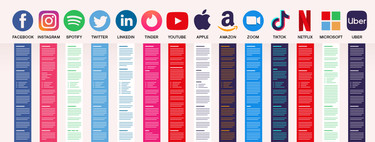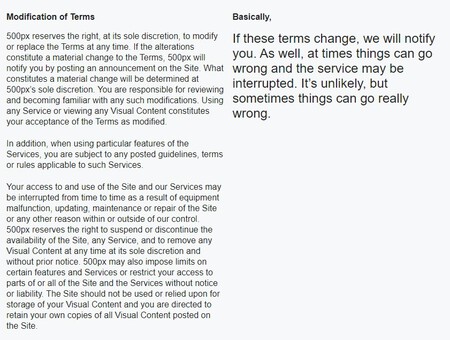A lot of text: the United States is considering summarizing by law the endless terms and conditions of use

“Next, next, next.” This phrase perfectly sums up how the vast majority of users interact with the services, apps and tools available on the Internet. The problem is that before each “following” there is a long (very long) text of terms and conditions that explains what we accept when using that tool. Reading it is important, but let’s face it, few do.
According to a report, it would take us 17 minutes to read the T&Cs of Facebook, almost ten minutes to read those of Instagram, 25 minutes to read those of Tinder and more than an hour to read those of Microsoft (which includes all its services). America’s idea to make these texts more affordable? Forcing companies to publish a summary.
“lots of text”
As detailed in the Washington Post, a bipartisan group of US lawmakers is “lobbying” for users to better understand the terms and conditions that, in short, they agree to when they use an app or access a service. According to the aforementioned medium, the objective is “make easy-to-digest summaries of your conditions, such as a nutrition label“.
This bill has the name “TLDR Law“(in English “Too Long, Didn’t Read”, in Spanish “Too long, I haven’t read it”). Under this, the platforms will have to publish their summarized T&Cs, indicate if they have been affected by data violations and what personal data they collect.
This is something that is explained in those T&Cs and in the privacy policy, but they are usually long, dense, technical and somewhat complex texts, especially for the user less educated in the matter. According to Lori Trahan, one of the deputies promoting this project, this is causing users to be unable to make “informed decisions” about whether or not it is worth using a tool.
The TLDR Law would apply to commercial websites and apps, but would exempt some small businesses. Agencies such as the FTC (Federal Trade Commission) and prosecutors would be responsible for enforcing this law, which is still on the table. However, it is a good initiative to improve the transparency of the sector and allow the user to be more informed.
It is not the first time that the idea that there should be summaries of the T&Cs has been put forward. Back in 2014, a survey revealed that only 7% of users read this text. In 2017, one deloitte survey revealed that 97% of users between the ages of 18 and 34 they accepted the terms without reading. Not bad at all, especially if we take into account this other study which indicates that, on average, a user sees 1,462 privacy policies per year.

500px Terms and Conditions. On the left the legal text and on the right the summary.
There are companies that already do this, such as 500px Y Pinterest. In two separate T&Cs, the two companies explain in a summarized way what all the legal text in the terms means in practice. In the image above you can see an example extracted from 500px.
We have also started to see it in the app stores, as in the App Store and soon on Google Play. In the App Store, for example, we can see very graphically what data used by apps and games to track us and what data can be linked to us, as well as a little explanation of what exactly each parameter is.
Via | Washington Post
Reference-www.xataka.com